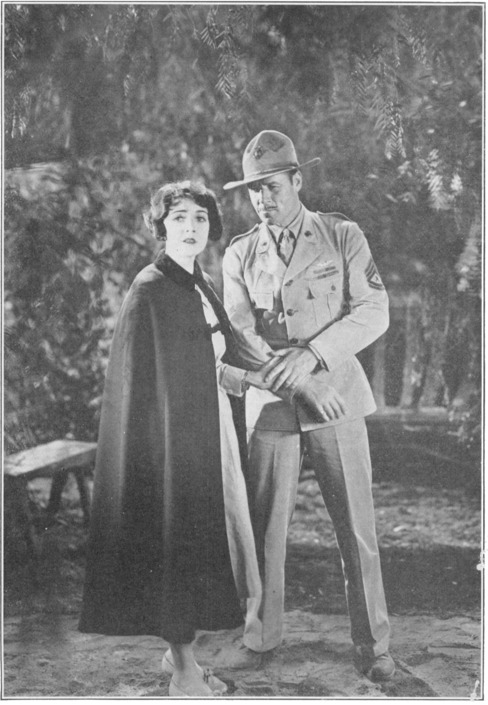E-text prepared by Roger Frank

“These flowers remind me of a barber shop,” he explained.
FLIGHT
AN EPIC OF THE AIR
By
IRWIN R. FRANKLYN
ADAPTED FROM
COLUMBIA’S ALL-TALKING PICTURE BY RALPH GRAVES
A FRANK R. CAPRA PRODUCTION
PRODUCED BY HARRY COHN
ILLUSTRATED WITH SCENES FROM THE PHOTOPLAY
GROSSET & DUNLAP
PUBLISHERS : : NEW YORK
Copyright, 1929, by
GROSSET & DUNLAP, Inc.
Made in the United States of America
TO
HAZELE HARMON
WITHOUT WHOSE GENEROUS ASSISTANCE THE STORY OF THE BOY WHO RAN BACKWARD WOULD NEVER HAVE BEEN WRITTEN
FLIGHT
CHAPTER I
On this particular chilly November afternoon, the famous Yale Bowlwas packed to its upmost tier with seething humanity, there for thepurpose of witnessing the classic football event of the season, betweenOld Eli and Harvard.
Though the score was nothing to nothing, with only two minutes to playin the last quarter, the Harvard side were jubilant, for Roger Baer, theYale star and Massachusetts’ only menace, had just injured his ankle andwas forced to leave the field.
These thousands of men and women, cramped into the great stadium,represented an army of interested, pulsating humanity divided intosides, with each faction placing their faith in the ability of the teamfor which they had come to root.
Whether it was to be Yale or Harvard who would emerge from the game,showered in the glory of victory, was a question of time, but whether ornot the men and women, whose eyes were fascinated by the action of theteams in the field, were really alive with interest, could be told bythe expressions registered upon their tense faces—the faces of all butone man.
Panama Williams had been dragged to the Yale Bowl by two of his buddiesfrom the Marine Aviation Base at San Diego, who were also on a leave ofabsence in the East.
Williams’ busy life had been cramped with so many things that sports hadnever found a place in his heart.
Why he had consented to go to the game, he couldn’t explain,nevertheless he was there, in a box on the Yale side, entirely devoid ofinterest or enthusiasm.
This man, attired in the uniform of the United States Marine Corps, withthe emblems of a top sergeant emblazoned upon each sleeve, was ataciturn, hard-boiled individual who had passed through four enlistmentsin the service of his country’s sea soldiers.
With the government’s aviation expansion program came a desire to winnew glories as a pilot, so Sergeant Williams, who had served his countryin the four corners of the globe, on land and sea, took to the air andagain made good.
This soldier, who found keen enjoyment in the coquetry of a tropicalnative girl, the roar of a sixteen-inch gun or the intricacies of aWright motor, lounged in a box at the Yale Bowl, visibly bored with theactivities going on about him, and completely unresponsive to the spiritof the play; a direct contrast to the Marine beside him, who sat,seething with emotion.
Over by the Yale bench, the worried coach, now confronted with thereality that his star player was lost to this gam